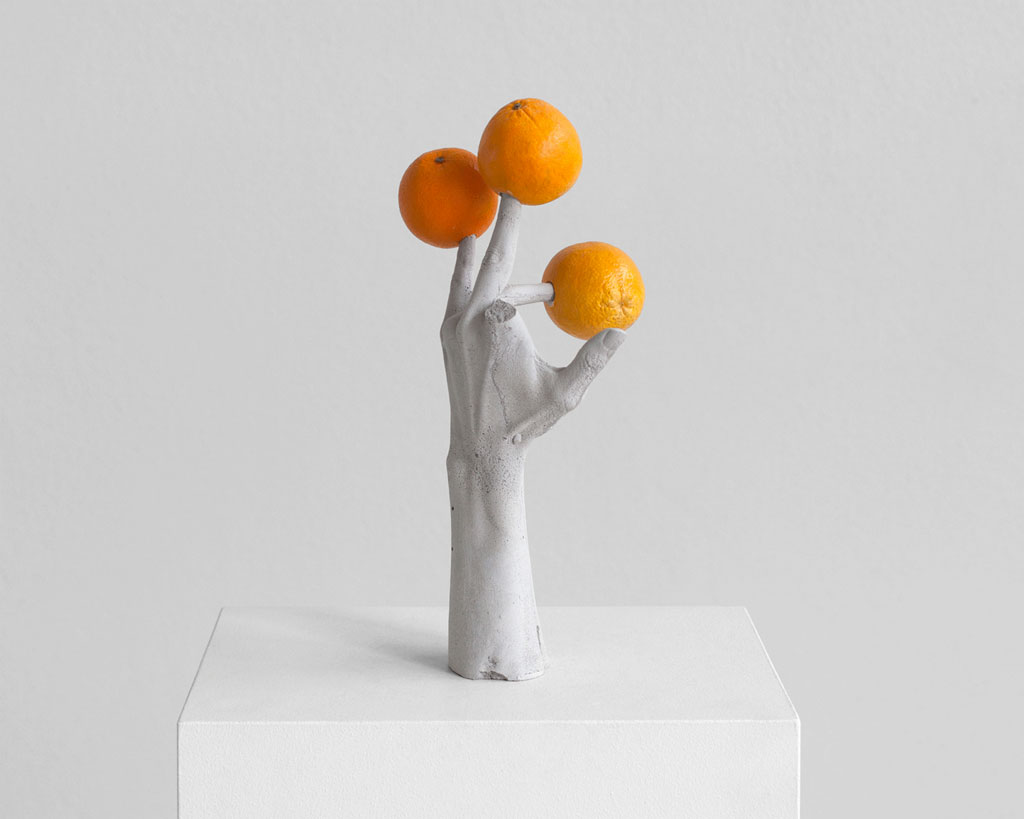ART-PREVIEW:Erwin Wurm-Yes Biological
 Erwin Wurm is famous for the “One Minute Figures” and “One Minute Sculptures” that he has been making since the late 1980s. In these, he gives instructions to himself, a model or member of the public: the person is asked to perform a certain action, or to interact with an everyday object in a specific way. Falling somewhere between ephemeral sculpture, performance and relational aesthetics, these incongruous (or even absurd) moments have been documented in photographs, drawings and videos.
Erwin Wurm is famous for the “One Minute Figures” and “One Minute Sculptures” that he has been making since the late 1980s. In these, he gives instructions to himself, a model or member of the public: the person is asked to perform a certain action, or to interact with an everyday object in a specific way. Falling somewhere between ephemeral sculpture, performance and relational aesthetics, these incongruous (or even absurd) moments have been documented in photographs, drawings and videos.
By Efi Michalarou
Photo: Lehmann Maupin Gallery Archive
New sculptures by Erwin Wurm are on show in his solo exhibition “Yes Biological”. For this exhibition, Wurm combines biological effects to create a new series that pushes the boundaries of sculpture even further. Featured in the exhibition is a work from Wurm’s now-iconic “One Minute Sculpture” series, which highlights the artist’s interest in the absurdity that can be found in mundane scenarios of daily life. For a full minute, audience members actively become a part of the work, as choreographed by the artist. Underlying this physical engagement is a commentary on gallery-goers’ attention span as well as the importance of a viewer’s engagement with works of art as a necessary agent for their completion. Building on this body of work, Wurm has produced a series of “One Minute Forever” sculptures, where he has substituted the active human body with acrylic versions. Here he incorporates fruits or books held “forever” by disembodied legs and hands, and in one work a torso resembling a Greek sculpture with a chair precariously resting on its shoulder. All of these white-painted sculptures belie a ritualized process that is characteristic of Wurm’s practice where form is abstracted and becomes absurd, thus creating a new sense of realism. Also on view in this exhibition, Wurm’s “Bar” series deploys found furniture such as a sidebar, a table, or a commode, bisected by a larger-than-life size pickle or potato-shaped white sculpture. The entire work is then used as a bar. Wurm’s disruption of both the original function and organic form of the mid-century modern furniture he employs is an engaging visual social commentary on the preciousness of art objects, antique furniture, and the ways in which we interact with our surroundings. The sculptures become emblematic of a wider history and social class, more specifically that of his native Austria’s 700-year-long monarchy, through the lens of design, manipulated and shaped by the artist. Distortion of forms is further explored in Wurm’s “Dissolution” series, where body parts such as a belly button appear embedded in a sculpture abstracted to the point that new organic forms emerge, seeming both familiar and alien to the viewer. The “Self-Portrait” sculptures are works that the artist shaped using the imprint of his knee onto clay and combined with everyday objects such as a broom, a plunger, or tennis balls. As the title of this body of work indicates, here the artist is reflecting himself in different everyday, mundane roles. These sculptures, as well as Wurm’s practice more broadly, are portraits of society that offer an implicit social critique of contemporary culture, emphasizing the banality of the everyday and challenging and extending the possibilities of sculpture.
Photo: Erwin Wurm, One Minute forever (hands/fruits), 2019, Concrete, 39 x 20 x 15 cm, © Erwin Wurm, Courtesy the artist and Lehmann Maupin Gallery
Info: Lehmann Maupin Gallery, 501 W 24th Street, New York, Duration: 16/1-22/2/20, Days & Hours: Tue-Sat 10:00-18:00, www.lehmannmaupin.com
